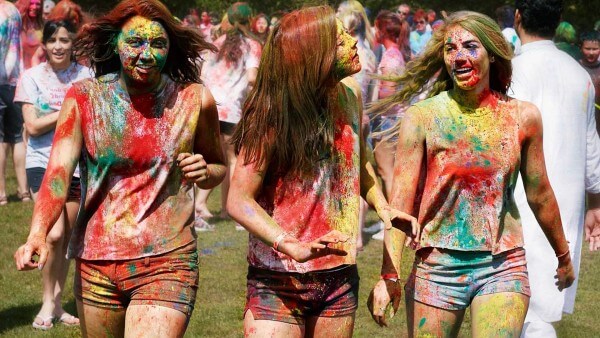
Holi is a spring festival also known as the festival of colors or the festival of love. It is an ancient Hindu religious festival which has become popular with non-Hindus in many parts of South Asia, as well as people of other communities outside Asia. It is primarily observed in India and other regions of the world with significant populations of Hindus or people of Indian origin.
The festival has, in recent times, spread to parts of Europe and North America as a spring celebration of love, frolic, and colors. The below info graphic “How does India celebrate Holi” displays the survey conducted by Baggout.com about this festival of colors. Following are the results of the survey conducted.
According to the survey, around 89% of the respondents were ready to celebrate this festival of colors. Mind you, it is a very big number. This shows the enthusiasm of the people for Holi. Also from the respondents, less than 20% see the festival as just another holiday while the rest see this glorious day to have fun and forgive people.
The survey found that the people are more happy celebrating Holi with their family and friends instead of celebrating in Holi parties. This festival of colors brings family and friends together. Also majority of the respondents prefer Gulal instead of organic color which contains harmful substances which is a good thing.
Interesting question about use of Bhang on Holi was asked and surprisingly only 23% people use Bhang on Holi. Over 60%respondents have suggested Indian Pichkaris than that of the Chinese one. Also over 60% people feel that mischievous elements create nuisance on Holi by breaking traffic rules, teasing girls and getting into unnecessary brawls.


